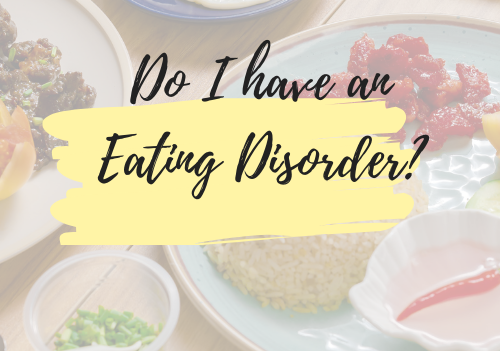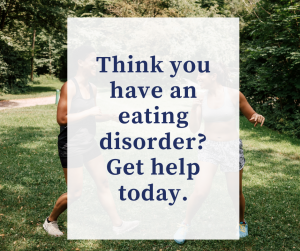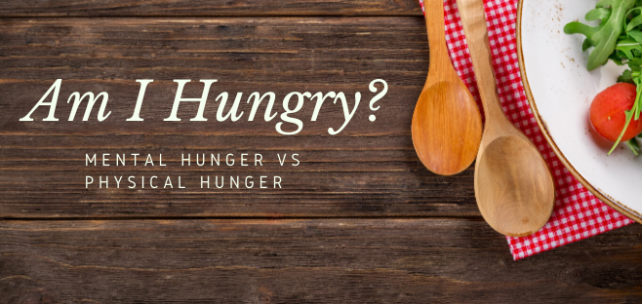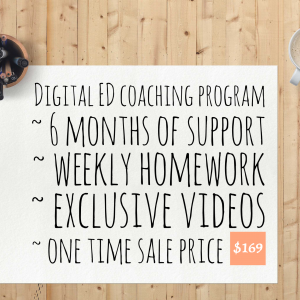Do I have an eating disorder?
I get this question more than I expect; people want to know the common eating disorder signs.
To be officially diagnosed with an eating disorder, you must see your primary care doctor or a licensed mental health professional.
However, below I’m going to share common signs that you might struggle with disordered eating.
15 Commons Eating Disorder Signs
1) you eat the same thing everyday; there’s little variety in your food choices
2) you have rules around what time you can or cannot eat
3) you lie or are secretive about eating and exercise behaviors
4) you find yourself trying to eat as little as possible
5) you think about FOOD a lot during the day, even when not eating
6) you feel out of control around food, like something else takes over
7) you weigh yourself daily
8) you panic or feel anxious when healthy food isn’t available for you to eat
9) you get upset if someone interrupts a workout or you can’t exercise
10) you measure or weigh your food
11) you obsess over a menu before you go to the restaurant
12) you feel extreme guilt or shame after eating
13) you’re obsessed with ingredients in your food
14) you say “no” to social outings where food is involved
15) you “forget to eat” or are too busy to eat
You do not have to have ALL of these to battle disordered eating. Also, just because you do experience some of these does not mean you have an eating disorder.
If any of the above eating disorder signs describe a loved one or a friend, go read how to talk to a friend about an eating disorder.
What to do about it?
Get help. Eating disorders are a mental illness and if you identify with these common eating disorder signs, it is best to take action right away.
Tell someone or seek a professional to help you. The best place to start is with a therapist who specializes in eating disorders. Psychology Today has a great list of therapists where you can see their speciality and their contact info. Also, visit the NEDA website for even more information.
I also have coaching resources available – a digital 6-month program, Break the Behaviors or you can schedule a free consultation here.




